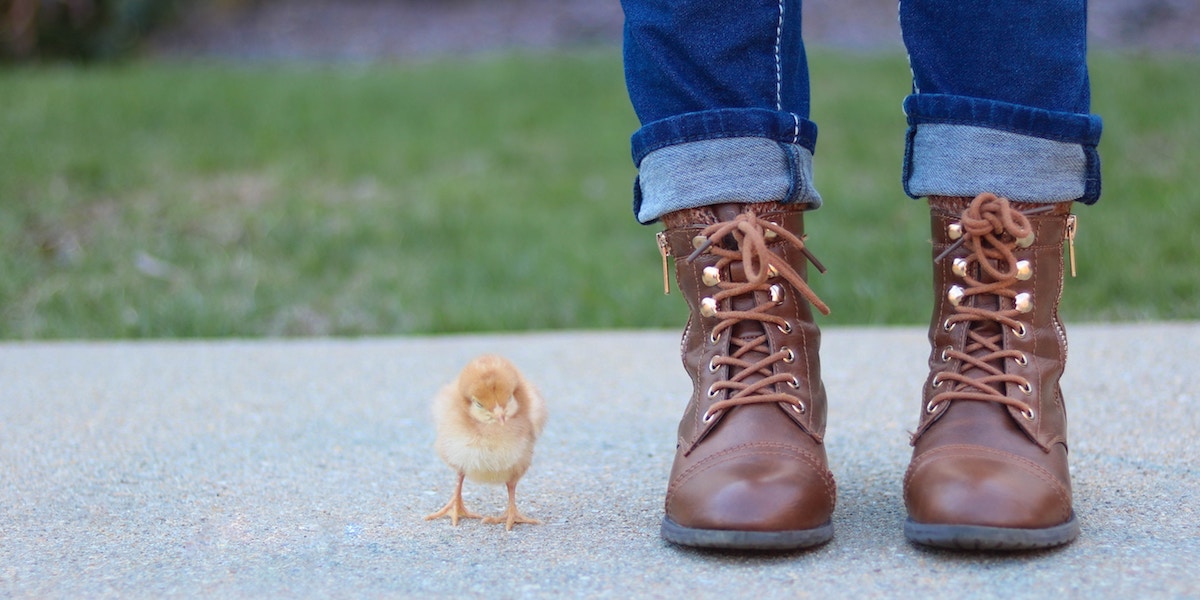READ ON TO DISCOVER:
- Why self-care is anything but selfish
- Why parents aren’t perfect (and that’s okay!)
- Why we should all give meditation another shot
Leah Weiss is a professor at the Stanford University Graduate School of Business, and the author of the recently released How We Work: Live Your Purpose, Reclaim Your Sanity, and Embrace the Daily Grind. Shauna Shapiro is a professor at Santa Clara University, a clinical psychologist, and an internationally recognized expert in mindfulness. The two recently sat down to discuss the power of self-compassion to help us build better habits, reduce stress, and strengthen our relationships.
This conversation has been edited and condensed. To listen to the full version, click the link below.
Leah: What’s one thing that you’re working on right now that you’re finding interesting or surprising?
Shauna: The importance of self-kindness and self-compassion in mindfulness. In my work with thousands of people, I’ve been stunned to discover that people are talking about the same thing: this sense of self-judgment, of not being good enough. They beat themselves up in this critical way to try to get better or improve.
But I’m learning that that approach simply doesn’t work. Not only does it feel terrible, but when we feel shamed or judged—especially when it’s our own shame and self-judgment—the parts of the brain that have to do with learning, growth, and change shut down. We’re actually freezing ourselves in the very behaviors that most need to change.
Leah: There’s so much belief built into the power of self-criticism and self-flagellation. I’m curious, when you take this information to people, how do they react?
Trending: 5 Reasons Life Gets Better After Your 40s
Shauna: [I’m met with] a lot of resistance, because it’s [so] counterintuitive. People think that if they’re compassionate and kind with themselves, it’s going to make them soft, or self-indulgent, or less motivated. That’s why the science is so important, because we found that self-compassion actually makes you more motivated and more resilient to setbacks, and better [able] to take care of yourself. Instead of being self-indulgent, we find that people who are compassionate with themselves actually eat healthier and exercise more because they care about themselves.
Leah: I love your use of the term “resistance” here, because this is a place where I also see a lot of resistance come up with people. They know that they’re struggling with self-compassion. They know that their self-criticism is making them miserable at work and in their personal lives. When you bring this idea of resistance into mindfulness practice, are there nuances for how you think about it?
“Self-compassion actually makes you more motivated and more resilient to setbacks.”
Shauna: Yeah, that’s a really good point. When you introduce mindfulness and you start talking about self-compassion, you don’t just shove it down someone’s throat. What I’m learning more and more is that this is not an all-or-none game. In my practice, I don’t say, “Okay, you need to be perfectly kind, or perfectly relaxed.” I say, “You know, just [try to be] 5% softer, 5% kinder, 5% more trusting in [yourself].”
When I work with my patients, it’s very much about relaxing this idea that things are supposed to be perfect, and really opening to what it is. For me, that has been the best avenue into introducing this idea of self-compassion.
Leah: We’re both moms—how do you think about this in your parenting? Any hacks you can share?
Shauna: It’s such an important question. In fact, I’m doing a lot more work now with parents—and mothers in particular—because the amount of self-judgment and self-criticism and shame that we experience as parents is greater than any I’ve ever found. I think because we care so much, we hold ourselves to these [impossibly high] standards. It really isn’t helping us be better parents, and it’s certainly not modeling for our children how we want to be.
The hack that’s been helping me is recognizing that I’m not going to be perfect. When I make a mistake with my son, and I feel the pain and the shame, the first thing I do is recognize that the reason I feel pain is because I love him so much, and because I care. If I was really a terrible mom, I actually wouldn’t care. The pain reminds me of how much I love him.
Then, instead of wasting time judging and shaming and feeling guilty, I use that energy to repair [things] with him. I’m not letting myself off the hook, but I’m not spiraling into mother guilt. I’m seeing clearly—which is really what mindfulness is about—so that I can respond wisely and compassionately and say, “Shoot. I didn’t handle that well.”
The other piece that has been really important for me is to have stronger boundaries, and to recognize that our children need a hierarchy. They need the parent to be a parent. You can have a loving hierarchy, which is what I really recommend, but there’s still a hierarchy where we’re creating boundaries to keep them safe. For me, it’s been finding that balance where I’m not an overly controlling helicopter mom, but I’m also not overly lenient and like, “Whatever, you can just take care of yourself.” Our children need to know that we’re keeping them safe and protecting them.

Leah: I love your use of the word “boundaries” there. As a working mom who wants to spend time with my kids, I had a habit of feeling guilty about self-care time. Like just saying, “I need a break,” and reading on a weekend afternoon was something I literally never did until the last 12 months.
Since I’ve started practicing it despite my guilt, I’m such a better parent, and I’m doing such a better service to myself [and my kids], and modeling what I want them to see. I saw the guilt for years, but couldn’t get over that hurdle to actually have that boundary. I’m curious what your take is on this.
Trending: 5 Simple Strategies for Persuading Anybody
Shauna: It’s a really good question, and it’s true for all of us, not just parents. There’s this sense that self-care is somehow selfish, or that it should be your last priority. And yet we find that when you take care of yourself, you are a better parent, a better employee, a better teacher, a better sister, a better lover. It’s not selfish when you understand that by taking care of yourself, you are able to give much more fully.
As parents, it really is through our modeling that we teach our children. I want my son to know what it’s like to feel joy, and pleasure, and ease, and a sense of an authentic “yes.” And if I’m modeling being stressed, and overwhelmed, and kind of a martyr all the time, he’s picking up that that’s what life is about.
What I want him to actually feel from me is this sense of wonder, and curiosity, and joy. The only way that’s going to be authentic is if I’m actually living that. Whatever we’re practicing in our daily lives, that’s what’s getting stronger, that’s what we’re growing, and that’s what we’re modeling to our children.
I’m a big, big fan of self-care, and I think it has to be authentic self-care. What I try to teach people is how to listen for your true yeses and your true nos, because sometimes self-care is saying “no” and sometimes it’s saying “yes.” I think people have lost touch with that knowing, that felt sense, that embodied wisdom where it’s, “Yes, this is what I want,” and, “No, this is not what I want.”
Leah: One of the things that’s striking to me is the power of having community, having the opportunity to talk about these dynamics that we have going on in the background as we’re moving through our day.
“Research shows that the mind wanders 47% of the time on average.”
Shauna: You’re talking about this sense that we’re not alone, right? We feel so alone in our guilt, and our self-judgment, and our sense that, “I’m not doing it right. I’ve got something wrong with me. I’m not okay.” When you start to hear that everyone feels like this, and that none of us are alone in our suffering, there’s this common humanity where we are connected. When we start to feel our connection, the only thing that makes sense is kindness, right? Toward each other, and toward ourselves.
Leah: When you look at the landscape of mindfulness training, research, and practice, what are we getting wrong? What are we overlooking? What are the misconceptions you would want to articulate for people that are interested in these topics?
Shauna: One of the misconceptions is that mindfulness is just about attention. It’s not. It’s about how you pay attention. When I see people practicing mindfulness, they often get so rigid and tight by trying to be present and do it right that they end up practicing pathways of striving, and self-judgment, and impatience. As we know from neuroplasticity, whatever we practice grows stronger, so they’re actually carving out neuropathways that maybe aren’t that conducive to happiness. [Instead,] we need to pay kind attention, compassionate attention, curious attention, open attention.
The other thing is that a lot of people think that they’re supposed to sit down and just get it [immediately]. They say, “Oh, I’m really terrible at meditation. It’s not for me—my mind wanders off all the time.” I say, “Well, everyone’s mind wanders.” Research shows that the mind wanders 47% of the time on average. So if your mind’s wandering half the time, you’re normal. This idea that it’s supposed to feel a certain way, or that you’re supposed to be always happier if you meditate, [is wrong].
Mindfulness is about being with what is in this kind, open way. Sometimes when I’m meditating, griefs comes up, or fear, or anger. What I’m learning to do is hold that in this loving embrace, in this kind attention, instead of feeling like, “No, I’m doing it wrong.” These nuances are really what make mindfulness transformational.
Trending: 40 Nonfiction Books to Look Out for in 2024
Leah: I love these points that you’re making. One of the things I observe in the way that mindfulness is being characterized is a really heavy emphasis on meditation, and a conflation of the ideas of mindfulness and meditation. I’m a huge fan of meditation, but I also think that there’s a problem with that, because it undercuts the questions about carrying mindfulness into work, into relationships, into interactions—which is where it’s really going to have an impact.

Shauna: Yeah, I think we do need to tease apart what is mindfulness in daily life, and what is mindfulness meditation practice. Mindfulness meditation is like when you go to the gym—I go to the gym and I lift weights, but lifting weights isn’t really why I’m doing it. I’m doing it so that I can go home and pick my son up, or carry groceries.
[Similarly,] we sit and do meditation practice to strengthen our capacity to be mindful, but mindfulness is so much bigger than meditation. Mindfulness is a way of being from moment to moment, and that’s why my definition [of it is about] intentionally paying attention with this attitude of kindness and curiosity.
So we have these three elements—intention, attention, and attitude—and we can bring those to any part of our lives. I can bring it to mindful eating—what’s my intention? To bring health and nourishment to my body. Can I do it with an open, curious, kind attention? We can bring this into the workplace, into the board meetings, into our communications. The key is remembering to be mindful. What I find in my own life is that when I meditate, I have a much greater capacity to bring it into my moment-to-moment experience, but [meditation] certainly isn’t required.
Leah: Any closing thoughts or observations before we sign off?
Shauna: One of the things that has completely shifted my practice is really understanding the science behind self-compassion and shame. I just want to reiterate that when we judge and criticize and shame ourselves, the parts of the brain that have to do with learning and growth shut down.
So I want to invite people to bring just 5% more kindness, 5% more compassion to themselves, and start to notice how you speak with yourself. If we want to be kinder, be happier, eat healthier, exercise more, be a better parent—anything we want, it’s through kindness and self-compassion that we change.



























